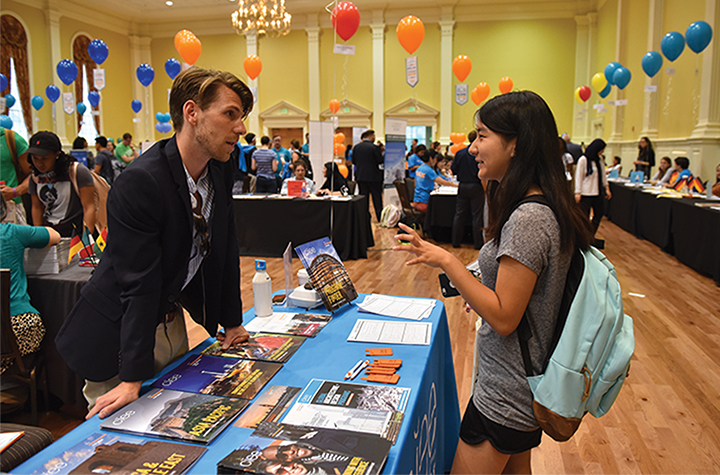Views expressed in opinion columns are the author’s own.
I spent 10 days this winter break on a trip to the relatively small city of Varanasi in northeast India. I was there as part of a service-learning experience with the University of Maryland student group Public Health Without Borders. There was smog and dust in the air, trash lining the streets and cow droppings in the middle of the road. Many Americans would write this place off as a shithole, but that would have missed what makes the residents’ way of life beautiful.
The people of Varanasi are among the friendliest I have ever encountered. They went out of their way to help us find our way throughout the city, and everywhere we went we were promptly offered hot tea. Their kindness and hospitality was unlike anything I have experienced in the United States.
While we were in Varanasi, we encountered beggars; we saw men doing the physically demanding job of driving rickshaws for hours on end; and we met with professors, non-governmental organization leaders and medical professionals. Claiming, as President Trump does, that their work ethic was any less than our own, or to stereotype an entire culture as uneducated and poor, would be a fallacy.
To write off any country as a shithole — as our president recently did when referring to Haiti, El Salvador and African countries — is to completely disregard an entire group of people and their culture. This is easy for Americans. With our relatively high levels of development and wealth, Americans have a tendency to view less developed countries as “uncivilized” or “dirty” by comparison. Because of our entrenched attitudes toward different cultures, appreciating societies that differ vastly from our own while recognizing that people around the world are working to improve conditions in their communities can be an immense challenge.
However, we can overcome this misconception. As students at this university, we have vast opportunities to immerse ourselves in different cultures. Through study abroad, service learning or even just traveling with friends, students can visit a developing nation and learn about a different group of people. There is no better way to understand a different culture than to experience it, and there may be no better time to do so than as a college student.
Encountering different cultures not only broadens one’s own mindset but can also help change the way the rest of the world views the U.S. It is no secret that much of the world sees us as imperialistic, discriminatory and arrogant. By meeting people from across the globe, we can show them what we truly value and who we really are. We can also bring back what we learn to our peers in the U.S. so that they might change their misconceptions of the developing world. Through travel and cultural immersion, we can improve ourselves and combat the dangerous instinct to divide ourselves along national and cultural lines.
Mitchell Rock is a senior government and politics and physiology and neurobiology major. He can be reached at mrock13@umd.edu.



